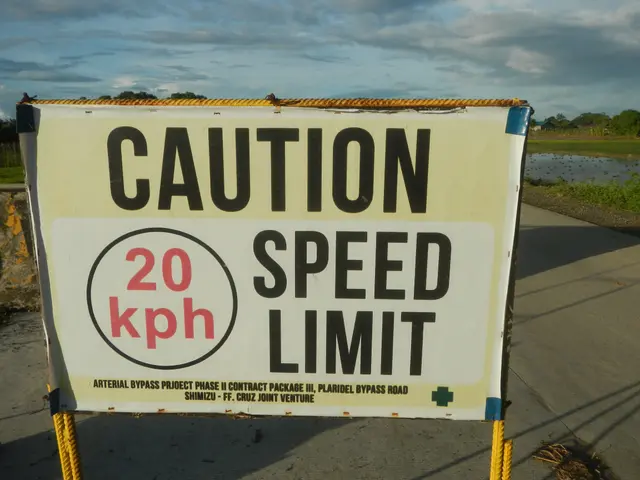Canada commits to enhancing wildfire countermeasures amidst U.S. criticism due to smoke-related issues
Canada Faces Second-Worst Wildfire Season on Record
Canada is currently experiencing one of its worst wildfire seasons on record, with over 74,000 square kilometres burned, surpassing the area burned in the second-worst wildfire season in 1989. The wildfires have sparked concerns and calls for action from various levels of government, including the federal government, U.S. lawmakers, and Republican politicians.
In response, the Canadian government has announced $45.7 million in funding for wildfire prevention and risk assessment research projects. This funding will support 20 research projects aimed at strengthening wildfire risk assessments and improving mitigation and prevention measures. Additionally, another 10 Indigenous-led projects will receive funding to build Indigenous forest management and community protection practices into Canada's wildfire prevention strategies.
One of the projects receiving funding is the Swan River First Nation's wildfire risk assessment and scenario exploration tool for land management policies. Another project is the Blood Tribe Fire Guardianship Program, which aims to develop a network of Indigenous youth and community members for community fire mitigation strategies.
The funding for these projects is drawn from previously-announced funding for two research grant programs. The Natural Resources Canada has estimated that fire suppression costs could double by 2040 as the country faces ever-worsening wildfire seasons.
The Canadian Interagency Forest Fire Centre's current situation report did not provide details on the specific research projects funded for wildfire prevention and risk assessment. However, it reported 719 active fires burning in Canada as of Tuesday, with 165 classified as out of control.
The smoke from Canadian wildfires has not only affected the country but has also sparked formal complaints and calls for action from U.S. lawmakers. Michigan Rep. John James sent a letter to Prime Minister Mark Carney expressing concerns about his constituents choking on toxic wildfire smoke. Wildfires burning across multiple American states have sent smoke into nearby communities and into Canada in recent years.
U.S. Ambassador to Canada Pete Hoekstra offered support for Canada's wildfire management, citing a shared history of supporting each other in times of crisis. Canada supports international cooperation to combat climate change and wildfires through various funding initiatives for research and collaborative projects, including climate adaptation and environmental monitoring programs.
Canadian agencies such as the Canadian Space Agency fund research related to atmospheric science—including aerosols and water vapor—that contribute to better climate modeling and resilience, linking to broader international efforts like NASA's Atmosphere Observing System. Additionally, Canadian funding opportunities such as the 2025-26 Partnering for Impact Catalyst Grant by CIHR aim to support collaborative health and environmental research projects, which can include climate-related challenges intersecting with public health.
Private and public sector grants also advance technologies for carbon capture and climate mitigation, exemplified by recent grants to Canadian companies accelerating global carbon capture innovation. Canada has pledged significant financial commitments, such as $15 million for climate adaptation projects in the Hindu Kush Himalayan region, partnering with local NGOs to enhance resilience in vulnerable populations.
In summary, Canada’s funding for international cooperation on climate change and wildfire research spans government programs, scientific collaborations, adaptation finance in vulnerable regions, and support for climate technology innovation, reflecting a multi-faceted approach to addressing these global challenges.
Read also:
- Germany's three-month tenure under Merz's administration feels significantly extended
- Hurricane-potential storm Erin forms, poised to become the first hurricane in the Atlantic Ocean this year.
- Skepticism About Climate Change Previously Held; Factors That Shifted Perspective Revealed
- Heavy rain causes flash floods in Hyderabad, resulting in severe waterlogging and disruptions to city life during a heavy downpour.







